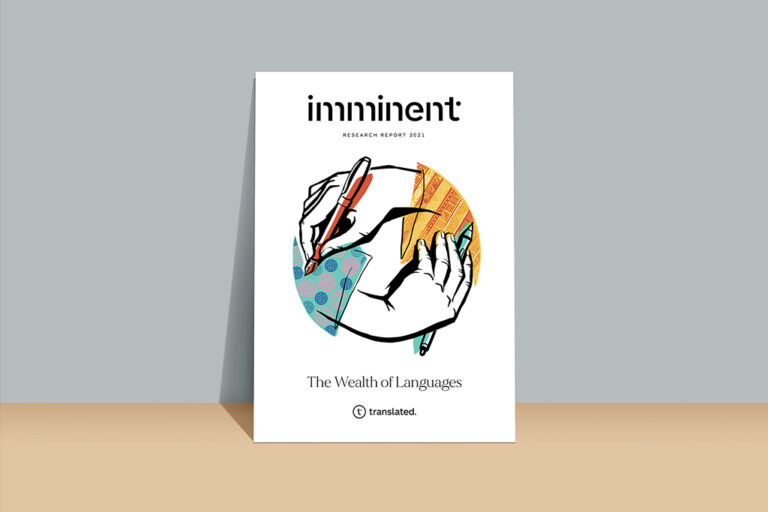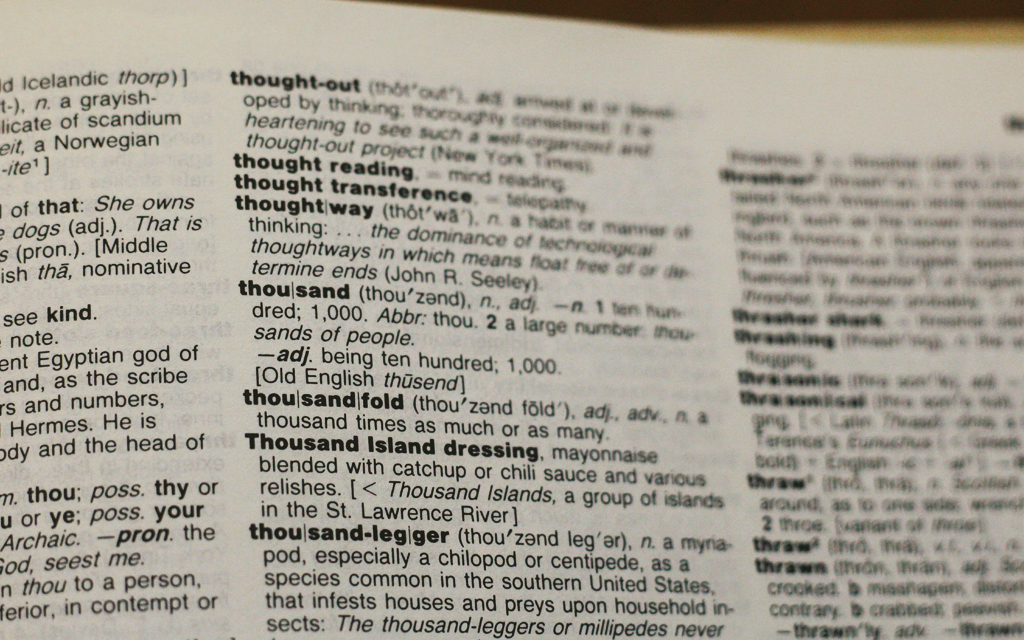Trends
Do Europeans actually speak English? Apparently, more than a half don’t. The EU bureaucrats should keep that in mind when it comes to communications. By Michele Gazzola, Lecturer in Public Policy and Administration at the School of Applied Social and Policy Sciences at Ulster University and editor of the academic journal Language Problems & Language Planning.
Introduction
On Monday 24 February 2020, an official press release aimed at the general public was published on the European Union website, describing the coronavirus measures adopted by the European Commission. It was a short text – around four pages long – that outlined the scientific, organisational and financial initiatives implemented in the previous weeks to deal with the explosion of the epidemic, which, as you may recall, was hitting Italy harder than other countries at the time. However, the press release was only available in English. The translations into other languages arrived days later. The translation in Italian, which was probably the most urgent at the time, was published after the Maltese and Spanish translations.
The European Union’s translation services, the most powerful and well-prepared of their kind in the world, were not activated to publish important and urgent information simultaneously in the 24 official languages. A one-off? Far from it. On 12 May 2020, the European Commission published the call for proposals as part of the ‘European Youth Together 2020’ project (which belongs to the Erasmus+ programme), an initiative aimed at promoting youth mobility and exchanges in Europe. The initiative had a budget of five million euros and was financed through the EU; in other words, largely through the taxes paid by all Europeans. Once again, the text was only available in English. The translations in French and German arrived a month afterwards, and those in other languages even later. Since the deadline for submitting projects was 28 July 2020, applicants who were native speakers of English had at least a month longer to prepare their projects than others: a significant competitive advantage.

The myth of English as a ‘lingua franca’
According to official data on the language skills of Europeans published by Eurostat (the European statistical agency), English is currently the native language of around 2% of the EU population now that the United Kingdom has left. Most of these speakers are Irish. In reality, Irish or Gaelic is itself an official and national language of the Republic of Ireland, as well as an official language of the EU, but it is very little used by the inhabitants of the Emerald Isle, with the exception of a small percentage of the population living in parts of the west coast known as the Gaeltacht. In line with the principles of linguistic democracy, it is therefore right for English to remain an official language of the Union, but we must consider the consequences of using it as the sole language of outward-facing EU communication. The Union actually has 24 official languages, and all of them are used for legally binding texts. However, many important and not legally binding texts, such as some institutional webpages, announcements and information, are only available in English, as illustrated by the two examples above. Many people will argue that English is the most widely spoken foreign language in the Union and that, in practice, it is already the European ‘lingua franca’. However, data from Eurostat gives the lie to this myth, and this is where we need to start.

Imminent Annual Report 2021
Fit your business in global shape. Get your copy of Imminent Annual Research Report 2021. And let us know what you think.
Get your copy nowThe percentage of the European population claiming not to know English lies between 51% and 56%, depending on the sample. The level among the remainder of the population is mostly basic or intermediate; the percentage of people claiming to know English very well as a foreign language is no more than 8% of the European population. These are mostly residents belonging to the more well-educated and high-income segment of the population. In short, if we add together those who speak English as their mother tongue and those who know it as a foreign language to a very high level – i.e. the level required to understand texts about the coronavirus or European projects – we reach around 10% of the population. The remaining 90% either do not understand English or do not speak it well. This figure alone is enough to show that the emperor has no clothes; in other words, that the exclusive use of English on many of the European Commission’s pages equates to a language policy that is palpably ineffective if not outright discriminatory.
“In short, if we add together those who speak English as their mother tongue and those who know it as a foreign language to a very high level – i.e. the level required to understand texts about the coronavirus or European projects – we reach around 10% of the population.”
Some may object that this issue is destined to be resolved within the space of a generation, thanks in particular to the work of schools. According to Eurostat data, in fact, English is the most widely studied foreign language in upper secondary education in the EU. More than 87% of pupils studied English as part of their upper secondary education in 2018, followed by French (19%), German and Spanish (both around 18%). Russian and Italian, meanwhile, were studied by just over 2% of pupils. For the avoidance of doubt, learning languages is unquestionably an enriching experience that should be encouraged. However, it is one thing to teach a language at school, and it is quite another to expect all young people, upon leaving school, to be able to express themselves without hesitation in that language. Once again, the data brings us back to the reality of the situation. In 2019, the Council of the European Union highlighted that only one in four secondary school pupils reaches a level of competence in the first foreign language studied whereby they can hold a simple conversation in said language. In other words, many study English at school, but very few learn it to a satisfactory level.

No taxation without translation
Faced with this reality – a reality based on data rather than ideologies or perceptions – the EU’s bureaucrats should redouble their efforts to align more closely with the citizens and taxpayers who finance Europe’s institutions. To do this, they must abandon the exclusive use of English in public-facing communication and instead embrace a more inclusive and respectful approach to the linguistic diversity that is one of the continent’s defining traits. The motto ‘no taxation without representation’ was coined in the 1760s by American colonists in protest against the London-based government that imposed taxes on the colonies without allowing them representation in the British Parliament. Europeans should put their own slant on this motto, reminding Brussels officials that there can be ‘no taxation without translation’. The exclusive and effectively discriminatory use of a language that only 10% of the population understands well is no fair return for the taxes paid, which finance the EU.
“The exclusive and effectively discriminatory use of a language that only 10% of the population understands well is no fair return for the taxes paid, which finance the EU. “
Multilingualism and automatic translation
Some may object that the use of one or a handful of languages helps to limit costs. Once again, though, the data indicates a more nuanced situation. In reality, expenditure on multilingualism in EU institutions accounts for less than 1% of the EU budget and less than 0.01% of the gross domestic product of the member states. The costs, therefore, are already very limited. Even if we accept that we do not want to increase them, however, it would be opportune to capitalise on the technological innovation that has helped us enormously during these difficult months of lockdown. I am referring in particular to machine translation, which has made great strides in recent decades. Today, automatic translation tools such as DeepL and Google Translate offer free translation services of remarkable quality, all things considered. It should be acknowledged that automatic translation is one of the cornerstones of the new European unitary patent system, at the behest of the European Commission itself. The unitary patent first adopted in 2012 will come into force in 2022 and will only be available in French, German and English. The Commission played the card of ‘high-quality’ automatic translation (ipse dixit) to overcome the resistance of Spain and Italy, which wanted to see Spanish and Italian included among the procedural languages for the new patent.

Imminent Annual Report 2021
Fit your business in global shape. Get your copy of Imminent Annual Research Report 2021. And let us know what you think.
Get your copy nowThe European Union, and the Commission in particular, should seize this new opportunity to embrace a more multilingual and inclusive communication model. If and when it is not possible to translate all of its site’s webpages, press releases, and certain documents that are not legally binding (such as calls for project proposals), the Commission should publish the texts in a predefined electronic format that can easily be copied, pasted, and translated by machine translation systems (not an encrypted PDF or a scan, in other words). This would also offer a second advantage. Not only would translations (albeit with some flaws) be available for use immediately prior to the publication of the human translations (the best and only truly accurate ones, it should be noted), but European officials would finally be free to draft and publish more documents in languages other than English. It does not matter if a press release is initially published only in German, guidelines in French, or a call for proposals in Spanish, because users will easily be able to automatically translate the text in question into their native language – including English, of course.
What languages are studied the most in the EU?
Michele Gazzola (2014) “Partecipazione, esclusione linguistica e traduzione: Una valutazione del regime linguistico dell’Unione europea”, Studi Italiani di Linguistica Teorica e Applicata, 43 (2), pp. 227-264
Michele Gazzola and François Grin (2013) ‘Is ELF more effective and fair than translation? An evaluation of the EU’s multilingual regime’, International Journal of Applied Linguistics, 23 (1), pp. 93-107
Michele Gazzola (2010) ‘Quali lingue per il brevetto dell’Unione europea? Un’analisi economica’, La Crusca per Voi, 41, pp. 7-10. See also Michele Gazzola (2011) ‘Conti precisi sull’importanza economica delle lingue nei brevetti industriali’, La Crusca per Voi, 42, pp. 8-10
Michele Gazzola (2016) ‘Research for CULT Committee – European Strategy for Multilingualism: Benefits and Costs’, PE 573.460. Brussels: European Parliament Committee on Culture and Education. Available for free online
Photo credits: Glen Carrie, Unsplash / Belinda Fewings, Unsplash / Joshua Hoehne, Unsplash
